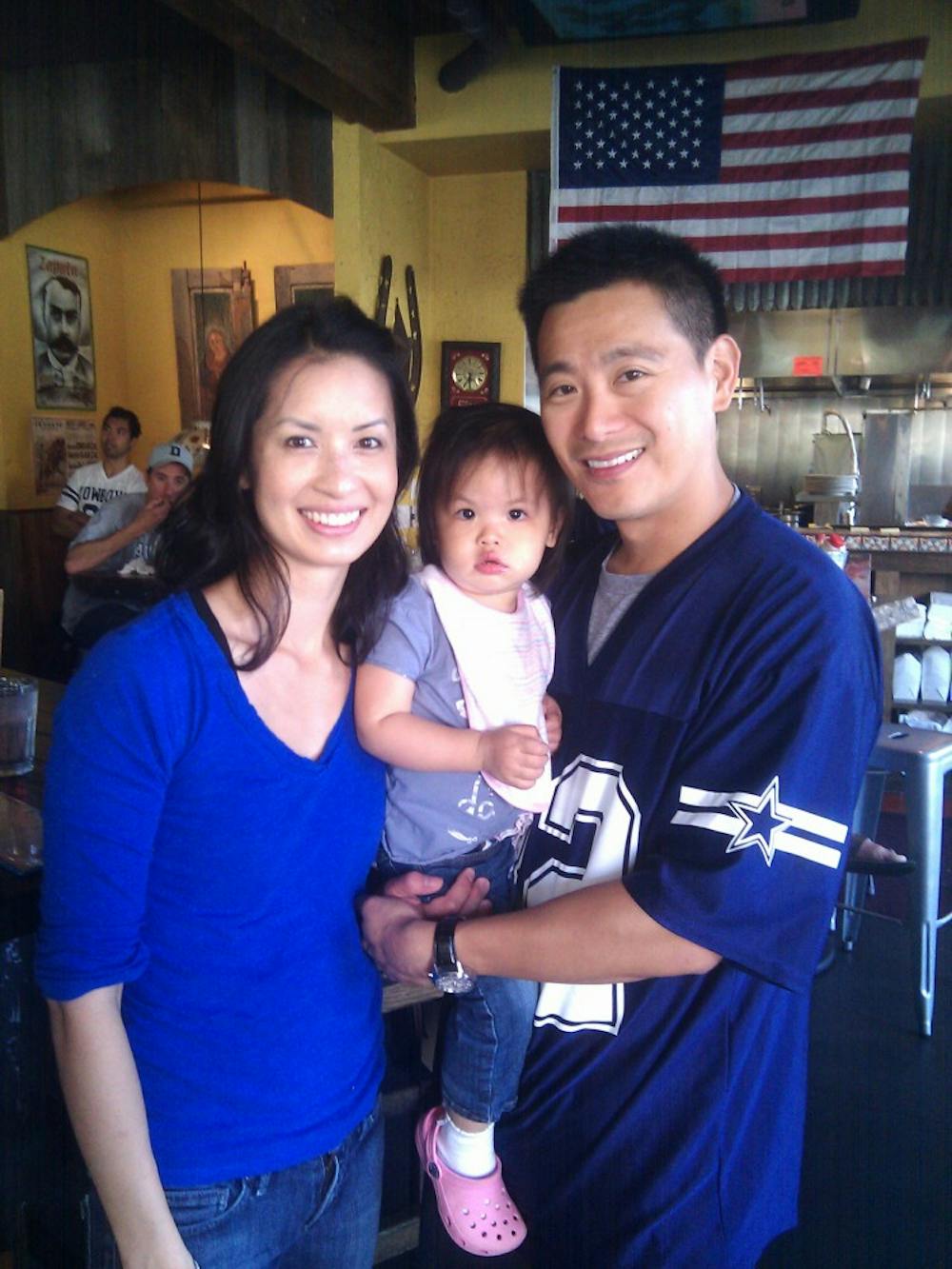
David Niu sold his properties and bought a one-way ticket for his family to take a year of “Careercation” — career and vacation.
The 2002 Wharton MBA alumni sought advice from entrepreneurs from around the world, including a wine maker in New Zealand, a fruit trader in China and a financial services consultant in Korea, on leadership, culture and managing people. Now Niu has written a book called “Careercation: Trading Briefcase for Suitcase to Find Entrepreneurial Happiness,” sharing their wisdom and discussing how to create a positive company culture. The “careercation” also inspired him to found TINYpulse, part of his company TINYhr, which provides cloud-based solutions to retain clients and employees and make them happier.
The book is available for free in installments online and can be purchased in print and ebook form. The Daily Pennsylvanian skyped with Niu, who now lives in Seattle, about his new book and entrepreneurial philosophy.
Daily Pennsylvanian: What gave you the inspiration and courage to take the journey and write a book?
David Niu: When I told most people that I would buy a one-way ticket to New Zealand and travel with my wife and my 10-month old daughter, most people thought, ‘You are crazy,’ or they said ‘I wish I could do that.’ I think the truth is somewhere in the middle. The reality is that if people really want to, they can do it.
Before my wife and I got married, we took a marriage counseling course together and got a package of cards ... one that really stumbled me was this card that says ‘What are your significant other’s dreams in life?’ So I had no idea. If we don’t know [what] someone else’s dreams are, we can’t make them become true. So we started to talk about what her dreams were and what my dreams were.
One of my dreams was I didn’t want to wait until 67 and have to collect social security, [to] have a little bit wealth, but not a lot of health. Society tells me that I should work really hard and save some money. But I don’t care. I am going to take this retirement and cut it into small slices throughout my life. So that’s why I call it careercation – a career vacation ... It was so valuable for me in terms of allowing me to reconnect with my family. And there’s no way that I would have started TINYhr and TINYpulse the way it is now without having [taken] that time off to talk to other people and be very intentional about what I want to do with my life.
DP: You dropped out of the Wharton MBA program and then returned. What’s your advice to students who are considering dropping out of school and starting their own business?
DN: I dropped out in 2000, and I re-matriculated in 2001, and graduated in 2002.
I think there’s a lot of the romantic stuff about dropping out of school ... But there’s also a lot of negatives, the dark sides. There’s depression. There’s loneliness . There are suicides that we don’t read about. One of the best things about school is that you get the opportunity to learn and meet people, who have the potential to be co-founders. And when you are at a school, you can almost call up any person in the world, and you can say, ‘I am a student, and I would like to find out more information. But if you are from a company, it’s a different barrier that you have to go through. So there’s definitely pros and cons ...
It’s definitely not something to do flippantly. I will be very intentional about why I am dropping out. Is there really [an] attraction around this idea? ... I am a big believer that focus is so important that if you really do believe in something, you probably should drop out of school and go for it, because [going] to school and [working] on it is probably not going to have the same type of outcome as someone who is 100 percent focused on it all the time.
DP: Is the book going to be free? So far the first chapter is free.
DN: Yes. The book is going to be entirely free. We are going to give one region out every week. When I [travelled] and [reached] out to these people, they were so selfless and so welcoming to give me feedback and allowed me to come into their life to talk to them. So I just don’t feel right about profiting from their advice . I should amplify what I’ve learned and give that to the entrepreneur community ... People who want to buy the kindle version, or hardcopy, they can. But they don’t need to.
DP: Is there anything else you want to say to Penn students?
DN: When I was cleaning my files, I found this folder from my time at Wharton. There was this article about pursuing dreams. I remember cutting it out and putting it into a plastic sheet cover. We come to this school with so much idealism. But over time we are convinced that this is the norm of the society and what expectations are given to us. The reason why I cut it out is to be a constant reminder for me. We should pursue our own path of happiness. No one should pass judgment on what we want to do.
The Daily Pennsylvanian is an independent, student-run newspaper. Please consider making a donation to support the coverage that shapes the University. Your generosity ensures a future of strong journalism at Penn.
DonatePlease note All comments are eligible for publication in The Daily Pennsylvanian.





